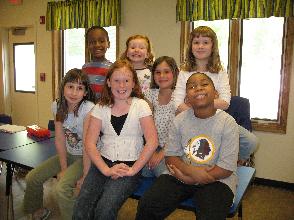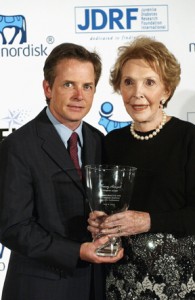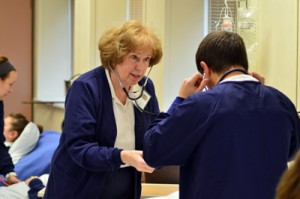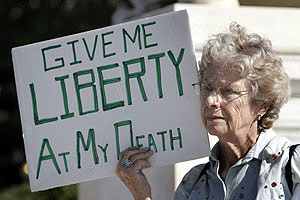Religiously Based Child Abuse and Neglect
 The U.S. Supreme Court has made it clear that the right to practice oneÔÇÖs faith does not extend to the point where childrenÔÇÖs health and safety are jeopardized. The Court ruled in Prince v. Massachusetts that parentsÔÇÖ religious beliefs do not give them a constitutional right to engage in practices that compromise a childÔÇÖs health or safety.
The U.S. Supreme Court has made it clear that the right to practice oneÔÇÖs faith does not extend to the point where childrenÔÇÖs health and safety are jeopardized. The Court ruled in Prince v. Massachusetts that parentsÔÇÖ religious beliefs do not give them a constitutional right to engage in practices that compromise a childÔÇÖs health or safety.
In his article, ÔÇ£The Children We Abandon,ÔÇØ William & Mary Law School Professor James G. Dwyer states that child abuse laws providing exceptions for perpetrators who deny children needed medical care for religious reasons ÔÇ£discriminate among groups of children, in the conferral of important state benefits, on an arbitrary and improper basis ÔÇô namely, the religious beliefs of other persons.ÔÇØ
Yet in 1996 Congress approved religious exemptions from the federal Child Abuse Prevention and Treatment Act (CAPTA). CAPTA now unconstitutionally discriminates against children whose parents belong to particular religious sects. CAPTA contradicts itself in that it requires parents to provide medical care for their children, but it also permits parents who believe in faith healing to withhold medical care. Thirty-seven states, the District of Columbia, and Guam have laws exempting parents or caretakers who fail to provide medical assistance to a child because of their religious beliefs from criminally liability.
POLICY RECOMMENDATION:┬áThe government has a parens patriae duty to protect our countryÔÇÖs children. States relinquish that duty and leave millions of children vulnerable to mistreatment when they include religious exemptions in child abuse and neglect laws.
EXCEPTIONS TO VACCINATION REQUIREMENTS
 Vaccine mandates in the United States are generally confined to children enrolling in schools and daycares ÔÇô children mingling with large numbers of other children. These mandates have been effective in reducing mortality and morbidity. Instead of directly coercing parents to vaccinate their children, these mandates make enrollment conditional on vaccination.
Vaccine mandates in the United States are generally confined to children enrolling in schools and daycares ÔÇô children mingling with large numbers of other children. These mandates have been effective in reducing mortality and morbidity. Instead of directly coercing parents to vaccinate their children, these mandates make enrollment conditional on vaccination.
Forty-eight states have religious exemptions and nineteen states have ÔÇ£philosophicalÔÇØ or ÔÇ£personal beliefÔÇØ exemptions from vaccines. Unvaccinated carriers lower the level of protection for everyone.
They especially place at risk babies too young to be vaccinated and those who, for medical reasons, are not vaccinated. But they also pose a risk to properly vaccinated persons whose immunity is compromised without their awareness of it. This was illustrated by a 2008 outbreak of five cases of HIB44 disease in Minnesota.
Proponents of such exemptions say unvaccinated persons pose no risk to vaccinated persons and argue U.S. vaccination rates are high enough to achieve herd immunity, a state when unvaccinated persons are protected from infection by the vaccinated individuals in a community. These arguments are false. Herd immunity is a misleading term; ÔÇ£herd effectÔÇØ would be more precise. Vaccinating the majority of group members does confer some protection on unvaccinated members, but many persons move from one ÔÇ£herdÔÇØ to another. Unimmunized children are not randomly distributed throughout a state nor are they always surrounded by vaccinated persons.
The number and percentage of parents claiming belief exemptions for their children has risen rapidly in the past decade, largely because of fears about vaccine safety, despite research which has shown vaccines to be safe. As vaccination rates have fallen, the number of measles and pertussis (whooping cough) cases has risen. In the U.S., children with personal belief exemptions are 35 times more likely to contract measles than properly vaccinated children. Public health officials have called upon legislators to make belief exemptions harder to obtain. Four states have passed laws requiring parents to listen to or watch medically accurate information about vaccines before being granted a belief exemption from immunizations for their children.
POLICY RECOMMENDATION: States should not endanger the public, especially children, through exceptions to state vaccination laws.
HEALTH AND SAFETY STANDARD EXEMPTIONS FOR RELIGIOUS CHILD CARE CENTERS
 When parents place their children in a child care center, they expect the facilities to meet minimum health, safety, and caregiver-training standards set by law. But if that child care center is religiously affiliated, they may unknowingly be putting their children at risk.
When parents place their children in a child care center, they expect the facilities to meet minimum health, safety, and caregiver-training standards set by law. But if that child care center is religiously affiliated, they may unknowingly be putting their children at risk.
Under the current federal funding system, if a child care center fails to meet the stateÔÇÖs health and safety standards for licensing, they can simply affiliate with a┬áchurch, religious institution or parochial school endorsed by a private religious accrediting agency, and be exempted from meeting those standards. Depending on the state, this can mean some of these child care centers are not regulated in relation to the following criteria:
- Minimum staff-to-child ratios;
- Minimum staff training requirement; and
- Various health, safety, and sanitation standards.
POLICY RECOMMENDATION:┬áState standards for child care centers that are designed to ensure childrenÔÇÖs health and safety and to provide parents with the assurance their children will be well cared for are important public policy. Exempting religiously affiliated child care centers from these requirements puts children at risk. Federal and state taxpayer dollars should benefit only those child care centers meeting all such health and safety standards.
CHILD ABUSE REPORTING EXEMPTIONS FOR CLERGY
 The confidentiality of pastoral communications is fundamental, but not absolute and confidentiality must be balanced with childrenÔÇÖs essential rights to be free from abuse. Every state and the District of Columbia have statutes identifying those who are required to report child maltreatment under specific circumstances. However, in as many as 23 states and the District of Columbia, the law is unclear or absent in relation to whether clergy are mandated to report┬áchild abuse and maltreatment. In approximately 18 states, any person who suspects child abuse or neglect is required to report it.
The confidentiality of pastoral communications is fundamental, but not absolute and confidentiality must be balanced with childrenÔÇÖs essential rights to be free from abuse. Every state and the District of Columbia have statutes identifying those who are required to report child maltreatment under specific circumstances. However, in as many as 23 states and the District of Columbia, the law is unclear or absent in relation to whether clergy are mandated to report┬áchild abuse and maltreatment. In approximately 18 states, any person who suspects child abuse or neglect is required to report it.
About 27 states currently include members of the clergy among those professionals specifically mandated by law to report known or suspected instances of child abuse or neglect.54 Eight states and the District of Columbia do not require that clergy report known or suspected instances of child abuse or harm. Only nine states explicitly include Christian Science practitioners among classes of clergy required to report. This is an important fact because of the role faith healing can play in the medical neglect of children.
Religiously affiliated child care centers are not subject to the health and safety standards of state licensing laws, even though many are supported by taxpayer funds. Source: Applied Research Center (now Race Forward, The Center for Racial Justice Innovation), (2009) Categorizing the 14 states with exemptions for centers.
A 2012 investigative report by Tampa Bay Times found that the Florida Department of Children and Families has investigated over 165 allegations of abuse and neglect at unlicensed religious childcare homes in the past ten years, finding evidence to support allegations in 63 incidents with a list of offenses that include physical injury, medical neglect, asphyxiation and sexual abuse.
In 2007 a number of deaths at teen residential programs prompted a nationwide investigation by the Government Accountability Office of residential treatment programs for troubled youths, many of which set themselves up as licensing-exempt religious child care facilities. The report found the use of extended stress positions, days of seclusion, strenuous labor, denial of bathroom access, and death. Following the reportÔÇÖs release, the House passed legislation to give students access to child-abuse hotlines and to keep track of abusive staff members and reports of abuse, but with intervention from the religious right, the bill died in the Senate.
POLICY RECOMMENDATION: While the confidentiality of pastoral communications is well recognized, due to the unique and vulnerable position of children and the recent history of abuse of this pastoral privilege, religious communication must not be exempted from mandatory child abuse reporting statutes.




